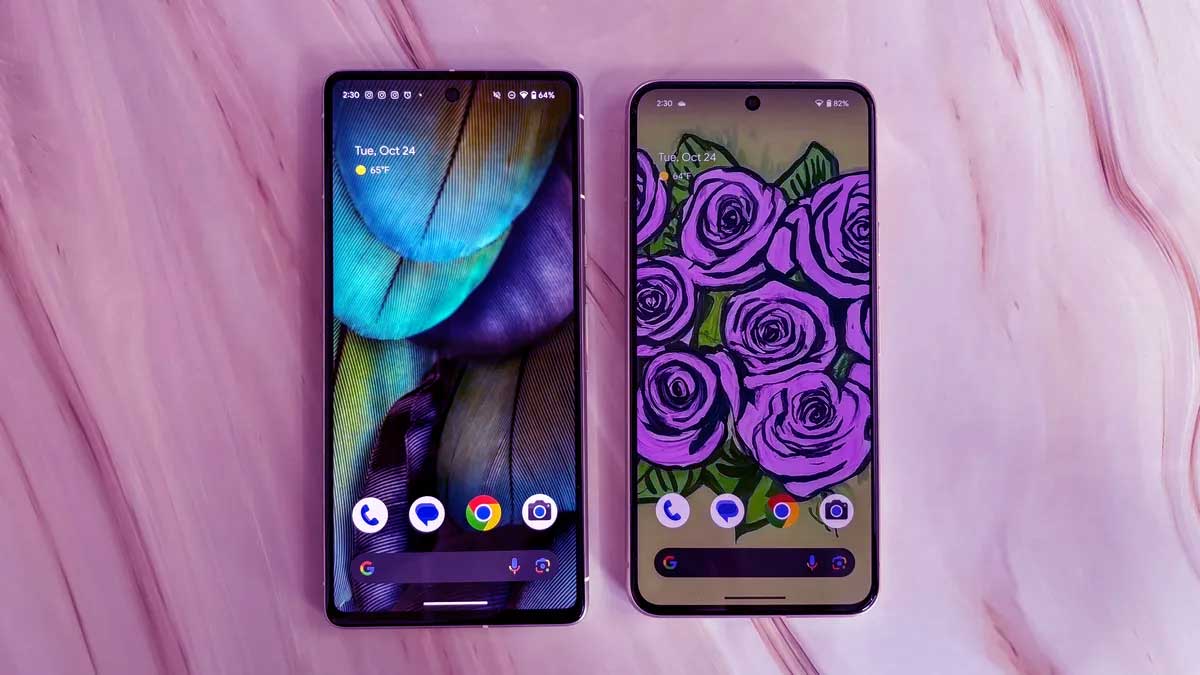- Home
- Billionaires
- Investing Newsletters
- 193CC 1000
- Article Layout 2
- Article Layout 3
- Article Layout 4
- Article Layout 5
- Article Layout 6
- Article Layout 7
- Article Layout 8
- Article Layout 9
- Article Layout 10
- Article Layout 11
- Article Layout 12
- Article Layout 13
- Article Layout 14
- Article Sidebar
- Post Format
- pages
- Archive Layouts
- Post Gallery
- Post Video Background
- Post Review
- Sponsored Post
- Leadership
- Business
- Money
- Small Business
- Innovation
- Shop
Recent Posts
Google Slashes Pixel 8 Prices Again, Preps for Pixel 8a Launch

Google has once again rolled out a new round of discounts for its Pixel 8 and Pixel 8 Pro smartphones, following previous sales in December, January, February, and March. The latest promotion sees the Pixel 8 priced at $549, down $150 from its original price, while the Pixel 8 Pro is now available for $799, a discount of $200. These reductions are consistent with Google’s previous discounting strategy, where the Pixel Fold typically receives more substantial price cuts.
The timing of these discounts coincides with Google’s preparation for the upcoming Google I/O event next month, where the company is expected to unveil its latest offering, the Pixel 8a. This anticipation has also led to recent discounts on the Pixel 7a, which is currently selling for $150 less than its regular retail price of $499. As Google prepares for the launch of the Pixel 8a, other retailers are also looking to clear their remaining stock of previous models.
Throughout 2024, Google has maintained a pattern of offering significant discounts on its Pixel lineup every month, making it an opportune time for consumers to purchase a new Android device. In addition to these discounts, Google has been offering incentives such as $125 gift cards to YouTube Premium subscribers purchasing a Pixel 8, and $100 coupons to random Google Photos users.
These aggressive pricing strategies are part of Google’s broader efforts to enhance the appeal of its subscription services. For example, the company recently integrated Nest Aware and FitBit Premium into its Google One cloud storage plan, and introduced new AI-powered editing tools to its desktop Google Photos platform. Google One subscribers also receive additional photo saves per month compared to non-subscribers, who are limited to 10 saves.
While these discounts present an attractive opportunity for consumers, there is a potential trade-off. Certain features, such as additional Google Photos saves and garage door detection on the Nest Aware platform, are only available to subscribers. This trend towards paywalled features reflects a broader industry shift towards tiered smartphone experiences based on AI capabilities. Samsung has already hinted at introducing charges for certain AI features beyond 2025, suggesting that this trend is likely to continue.
Recent Posts
Categories
- 193cc Digital Assets2
- 5G1
- Aerospace & Defense46
- AI37
- Arts3
- Banking & Insurance11
- Big Data3
- Billionaires447
- Boats & Planes1
- Business328
- Careers13
- Cars & Bikes76
- CEO Network1
- CFO Network17
- CHRO Network1
- CIO Network1
- Cloud10
- CMO Network18
- Commercial Real Estate7
- Consultant1
- Consumer Tech180
- CxO1
- Cybersecurity68
- Dining1
- Diversity, Equity & Inclusion4
- Education7
- Energy8
- Enterprise Tech29
- Events11
- Fintech1
- Food & Drink2
- Franchises1
- Freelance1
- Future Of Work2
- Games141
- GIG1
- Healthcare78
- Hollywood & Entertainment186
- Houses1
- Innovation42
- Investing2
- Investing Newsletters4
- Leadership65
- Lifestyle11
- Manufacturing1
- Markets20
- Media193
- Mobile phone1
- Money13
- Personal Finance2
- Policy567
- Real Estate1
- Research6
- Retail1
- Retirement1
- Small Business1
- SportsMoney33
- Style & Beauty1
- Success Income1
- Taxes2
- Travel10
- Uncategorized8
- Vices1
- Watches & Jewelry2
- world's billionaires416
Related Articles
LG’s 77-Inch Transparent OLED TV Now Available for $59,999
At CES 2024, LG unveiled one of the most mind-blowing innovations in...
By 193cc Agency CouncilDecember 20, 2024Iqunix Magi 65: Stylish and Compact Mechanical Keyboard
The Iqunix Magi 65 series offers a refreshing take on mechanical keyboards,...
By 193cc Agency CouncilDecember 20, 2024Amazon Recalls Charmast Power Banks Over Fire Risks
Nearly half a million power bank chargers sold exclusively on Amazon over...
By 193cc Agency CouncilDecember 20, 2024Book Review: Unlocking AI’s Power in Everyday Life
In a world where artificial intelligence (AI) frequently makes headlines in the...
By 193cc Agency CouncilDecember 16, 2024















Leave a comment